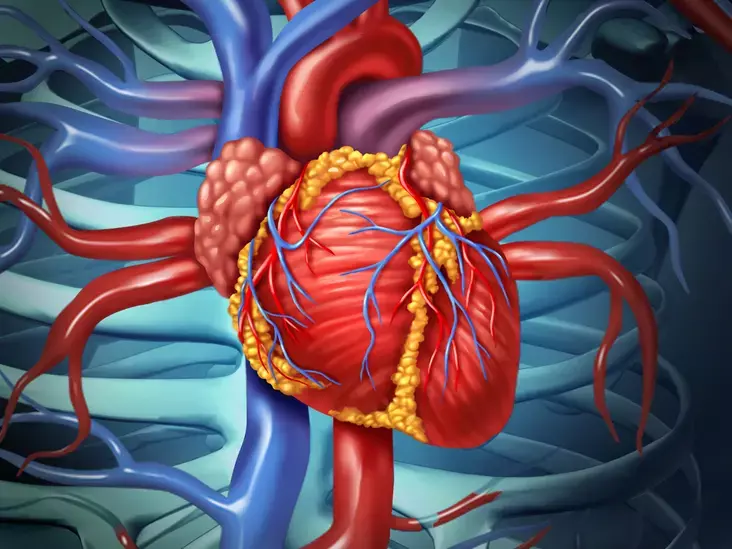- Home
- Medical news & Guidelines
- Anesthesiology
- Cardiology and CTVS
- Critical Care
- Dentistry
- Dermatology
- Diabetes and Endocrinology
- ENT
- Gastroenterology
- Medicine
- Nephrology
- Neurology
- Obstretics-Gynaecology
- Oncology
- Ophthalmology
- Orthopaedics
- Pediatrics-Neonatology
- Psychiatry
- Pulmonology
- Radiology
- Surgery
- Urology
- Laboratory Medicine
- Diet
- Nursing
- Paramedical
- Physiotherapy
- Health news
- Fact Check
- Bone Health Fact Check
- Brain Health Fact Check
- Cancer Related Fact Check
- Child Care Fact Check
- Dental and oral health fact check
- Diabetes and metabolic health fact check
- Diet and Nutrition Fact Check
- Eye and ENT Care Fact Check
- Fitness fact check
- Gut health fact check
- Heart health fact check
- Kidney health fact check
- Medical education fact check
- Men's health fact check
- Respiratory fact check
- Skin and hair care fact check
- Vaccine and Immunization fact check
- Women's health fact check
- AYUSH
- State News
- Andaman and Nicobar Islands
- Andhra Pradesh
- Arunachal Pradesh
- Assam
- Bihar
- Chandigarh
- Chattisgarh
- Dadra and Nagar Haveli
- Daman and Diu
- Delhi
- Goa
- Gujarat
- Haryana
- Himachal Pradesh
- Jammu & Kashmir
- Jharkhand
- Karnataka
- Kerala
- Ladakh
- Lakshadweep
- Madhya Pradesh
- Maharashtra
- Manipur
- Meghalaya
- Mizoram
- Nagaland
- Odisha
- Puducherry
- Punjab
- Rajasthan
- Sikkim
- Tamil Nadu
- Telangana
- Tripura
- Uttar Pradesh
- Uttrakhand
- West Bengal
- Medical Education
- Industry
Ultrasonography fails to reduce bleeding or vascular complications for femoral access: JAMA

Ultrasonography did not reduce bleeding or vascular complications for femoral access but did facilitate access according to a recent study published in the JAMA Cardiology.
A significant limitation of femoral artery access for cardiac interventions is the increased risk of vascular complications and bleeding compared with radial access. Strategies to make femoral access safer are needed.
A study was conducted to determine whether routinely using ultrasonography guidance for femoral arterial access for coronary angiography/intervention reduces bleeding or vascular complications.
The Routine Ultrasound Guidance for Vascular Access for Cardiac Procedures (UNIVERSAL) randomized clinical trial is a multicenter, prospective, open-label trial of ultrasonography-guided femoral access vs no ultrasonography for coronary angiography or intervention with planned femoral access. Patients were randomized from June 26, 2018, to April 26, 2022. Patients with ST-elevation myocardial infarction were not eligible.
Results:
- A total of 621 patients were randomized at 2 centers in Canada
- The primary outcome occurred in 40 of 311 patients (12.9%) in the ultrasonography group vs 50 of 310 patients (16.1%) without ultrasonography
- The rates of Bleeding Academic Research Consortium 2, 3, or 5 bleeding were 10.0% vs 10.7%
- The rates of major vascular complications were 6.4% vs 9.4%
- Ultrasonography improved first-pass success and reduced the number of arterial puncture attempts and venipuncture with similar times to access
- All prerandomization prespecified subgroups were consistent with the overall finding.
Thus, in this randomized clinical trial, use of ultrasonography for femoral access did not reduce bleeding or vascular complications. However, ultrasonography did reduce the risk of venipuncture and number of attempts. Larger trials may be required to demonstrate additional potential benefits of ultrasonography-guided access.
Reference:
Jolly SS, AlRashidi S, d'Entremont M, et al. Routine Ultrasonography Guidance for Femoral Vascular Access for Cardiac Procedures: The UNIVERSAL Randomized Clinical Trial. JAMA Cardiol. Published online September 18, 2022. doi:10.1001/jamacardio.2022.3399
Keywords:
Jolly SS, AlRashidi S, d'Entremont M, Routine, Ultrasonography, Guidance, Femoral, Vascular, Access, Cardiac, Procedures, JAMA Cardiology
Dr. Shravani Dali has completed her BDS from Pravara institute of medical sciences, loni. Following which she extensively worked in the healthcare sector for 2+ years. She has been actively involved in writing blogs in field of health and wellness. Currently she is pursuing her Masters of public health-health administration from Tata institute of social sciences. She can be contacted at editorial@medicaldialogues.in.
Dr Kamal Kant Kohli-MBBS, DTCD- a chest specialist with more than 30 years of practice and a flair for writing clinical articles, Dr Kamal Kant Kohli joined Medical Dialogues as a Chief Editor of Medical News. Besides writing articles, as an editor, he proofreads and verifies all the medical content published on Medical Dialogues including those coming from journals, studies,medical conferences,guidelines etc. Email: drkohli@medicaldialogues.in. Contact no. 011-43720751


